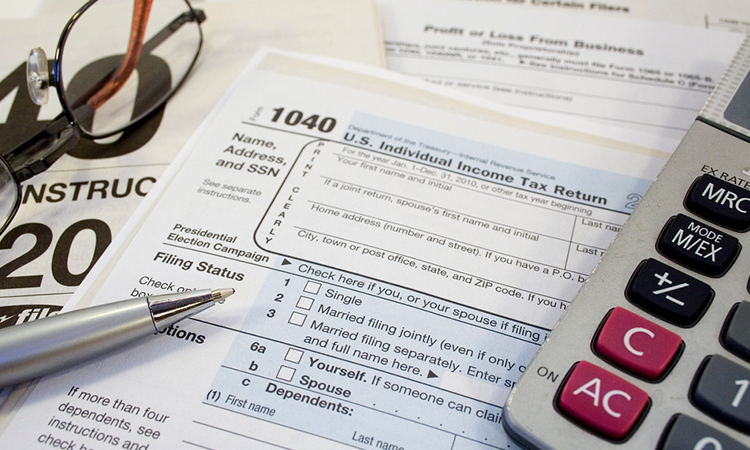

By I.J. Zemelman, EA.
Whether US expats like it or not, the IRS imposes taxes to all of its citizens’ and Green Card holders’ income despite where in the world it is earned. Over the course of the last few years, the IRS has added literally thousands of agents to the payroll worldwide to crack down on international tax evaders who either have not filed US expat taxes or are withholding information about large balances in overseas accounts. If either or both of these apply to you and you haven’t heard from the IRS yet, it’s in your best interest to come clean as soon as possible, file your back taxes, and/or report all the information about your foreign financial accounts.
Although the income tax filing threshold for being required to file has been increasing over recent years, it has stayed within a certain ball park. For 2013, for example, the lowest requirement for an individual who works for an employer is $10,000; it’s only gone up $50 since 1 year ago. If you are single but can be claimed as another person’s dependent, the filing threshold is $6,100. However, the threshold is as low as $1,000 when the dependent’s income is unearned, such as from dividends and interest. If you are a self employed individual, the minimum income requirement is $400 – the same as it’s been for the last few years. The threshold range for married couples in 2013 is v (higher when one or both spouses reached the age of 65).
The income filing thresholds established by the United States Internal Revenue Service apply to every US Citizen and Green Card holder, even the ones who live and work in foreign country. It’s also important to note that there are circumstances besides having earned income for which you would be required to file US taxes. These circumstances include: You sell property or another major asset, you receive a large gift or are the beneficiary of a will or trust, you have a qualifying IRA or other retirement account, you have foreign accounts which have generated a profit of $1,500 or more, and a few other requirements which generally don’t apply to US expats. To learn more about circumstantial filing requirements, refer to Publication 501 Table 3.
US expats living abroad during tax season are granted an automatic extension to file their taxes. Rather than being due on April 15, they must be filed by June 15. Filing, however, is not to be confused with paying; if you expect to pay taxes use Form 1040-ES before April 15 to get an estimate of the taxes you will owe and send your payment to the IRS by April 15. If you wait to send your payment, the IRS will most likely charge interest and impose late penalties by the time you send your actual return and remit payment.
US expats who have lived overseas for at least 330 days qualify for the Foreign Earned Income Exclusion (FEIE). The FEIE authorizes you to deduct up to $97,600 (in the 2013 tax year) from your taxable income in the US. US expats who earned less than this amount overseas will most likely not have any US tax liability, although other circumstances may dictate otherwise. Even if you qualify for the exclusion you still have to file your US expat taxes; you can’t claim it if you don’t file.
If your income was higher than the FEIE maximum exclusion, you may claim an additional credit against taxes you paid to a foreign country (if any) and apply it to your US expat taxes. You can’t claim more in foreign tax credits than your US tax liability, but you CAN apply unused credits to the following tax year.
There are a variety of situations for which you must file additional tax forms or face stiff penalties. One of these situations is in the event you own at least 10% of a foreign Corporation (Form 5471), LLC, or Partnership (Form 5472). Another reason is if you are the beneficiary of a Foreign Trust like a Mexican Fideicomiso (Form 3520 and Form 3520A). The IRS takes this requirement seriously and may be inclined to go as far as filing criminal charges to those who fail to adhere.
Owning shares of a PFIC (Passive Foreign Investment Company), requires you file Form 8621 and also has stiff penalties for non-compliance. A PFIC is a foreign Corporation for which at least 75% of its gross income is passive income or at least 50% of its assets either currently generate passive income or will generate passive income sometime in the future.
If you are self employed you will be required to pay SE tax to the US. Additionally, you will be required to make additional Social Security contributions. You may live and work in a country in which an active tax treaty exempts you from paying either the SE tax or making US Social Security contributions. It is well worth your time to become familiar with the details of the tax treaty your host country has with the United States – if any. If you do happen to be exempt from either, it isn’t granted automatically; you will have to engage in some footwork such as acquiring a mandatory certificate and making other required arrangements with both countries.
If you have foreign bank accounts or other foreign financial accounts whose total balance is (or was at any time of the taxable year) are at least $10K, you are required to submit an FBAR (Foreign Bank Account Report) by June 30 to the US Department of Treasury. Please be aware that Form TDF 90-22.1 previously used to report foreign bank account has been discontinued. IRS no longer processes paper filed foreign account forms. The Financial Crimes Enforcement Network (FinCEN) has developed an electronic filing system that will accept Report of Foreign Bank and Financial Accounts (FBAR). For more information about electronic filing, read the FinCEN news release .
If you are single and your account balance was either over $200K at the end of the year or reached at least $300K at any time during the year, you must file a new form in 2011, Form 8938. This also applies to married couples whose foreign accounts were either $400K at the end of the year or had reached $600K at any point during the year. This form does not go to the Department of Treasury; it is filed with your US expat taxes.
There is an additional requirement to report world worldwide financial assets if their combined value exceeds $50K. If you own an overseas estate, you may be required to submit Form 6038D.
Income earned from specific types of foreign corporations is taxable to the US shareholder. Owning a corporation in which only your personal services are provided means that you own an FPHC (Foreign Personal Holding Company) for which special US taxes will also be assessed.
The IRS is using information on US expats’ passports and it has a variety of other methods to research foreign income and foreign accounts, track address and employer information around the globe, and identify taxpayers who have not filed US taxes for a year or more. There are very few countries that do not cooperate with the United States when it comes to income and foreign accounts, and agents are being deployed all over the world to enforce United States tax rules and regulations.
 About the author:
About the author:
I.J. Zemelman, EA is the founder of Taxes for Expats
She may be reached at: +1-646-EXPAT-US
Email: [email protected]
Web site: www.taxesforexpats.com









